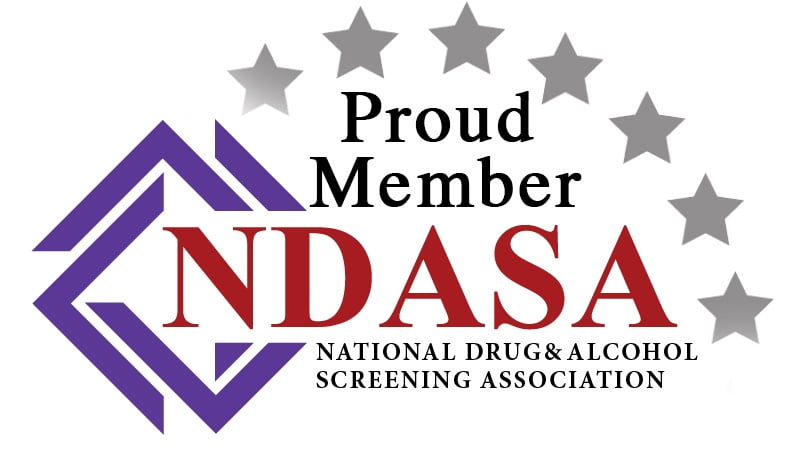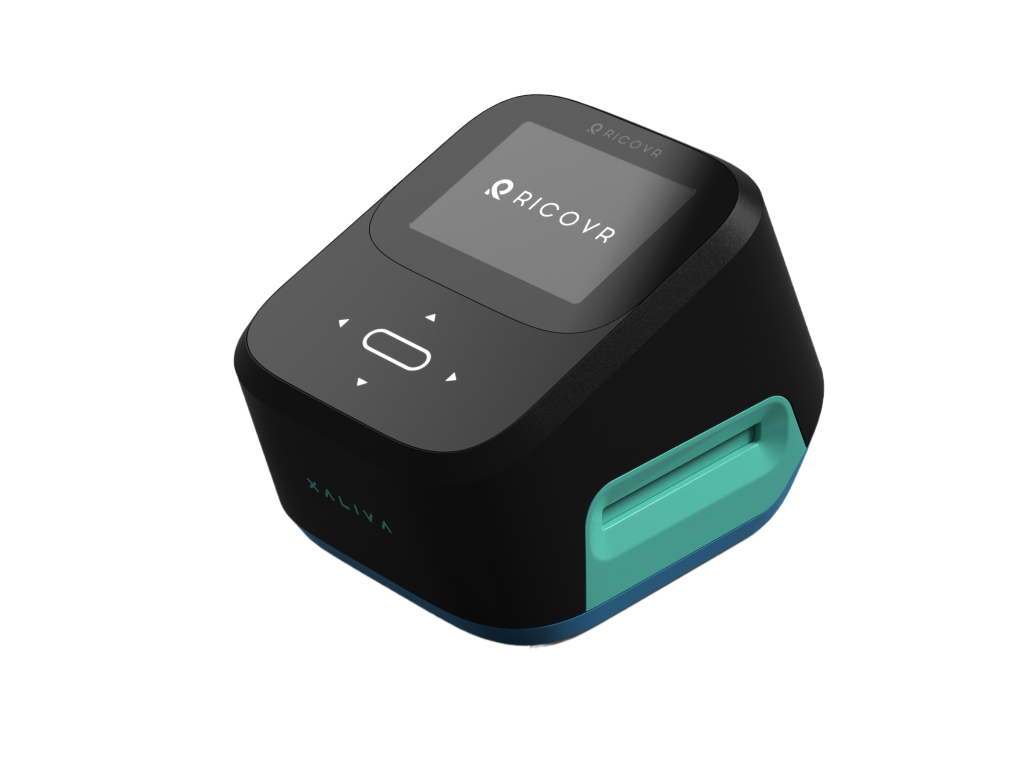Has my state changed its marijuana (THC) drug testing laws; can we still test? With a majority of states now having some form of legal cannabis, we hear this question often.
As of June 2023, eight states have passed laws prohibiting adverse employment actions based on the use of cannabis off the job and away from the workplace. These laws place restrictions on the employer from taking adverse action on employees for using marijuana legally outside of work hours. Some states now require that employees exhibit signs of impairment before taking adverse action from a positive THC drug test.
Most of these new laws allow for testing in safety-sensitive positions and or based on the drug test method. For example, California has banned the use of tests that detect cannabis metabolites or past use. They will only allow tests that detect active THC molecules or recent use with saliva-based tests. We compiled a breakdown of new marijuana (THC) employment laws that affect drug testing by state.
*Disclaimer; this is only for informational purposes and not intended to be used as legal advice or opinion. Employers should always consult with their attorneys on labor or employment legal matters.
California
Assembly Bill 2188.1 takes effect January 1, 2024, making it unlawful to discriminate in hiring, terminating, or any other condition of employment based upon a person’s use of cannabis off the job and away from the workplace.
The law prohibits employers in California from screening employees using methods that detect non-psychoactive cannabis metabolites in urine, hair, and other tests. As stated in the new law, this is because metabolites indicate past use of 30 days or more that does not correlate to impairment or intoxication. According to the California Legislature, due to advancements in science, “employers now have access to multiple types of tests that do not rely on the presence of nonpsychoactive cannabis metabolites.” These included “tests that identify the presence of THC in an individual’s bodily fluids.” (1)
The law exempts certain applicants and employees from its provisions, including employees in the building and construction trades and applicants and employees in positions requiring a federal background investigation or clearance, as specified. (1)
“Businesses would still be allowed to use saliva tests that look for active Tetrahydrocannabinol, or THC, a sign that a worker could be intoxicated on the job.” (2) Rapid saliva-based testing provides the solution as it has a window of detection that starts immediately after use and lasts for the entire marijuana window of impairment, is easy to administer on-site, donor-driven and is non-invasive. It provides fairness to legal users outside of work while ensuring safety on the job.
- https://leginfo.legislature.ca.gov/faces/billNavClient.xhtml?bill_id=202120220AB2188
- https://www.politico.com/newsletters/california-playbook-pm/2022/08/15/weed-and-the-workplace-00052046
Connecticut
Beginning July 1, 2022, when a drug test yields a positive result for only THC, an employer may not use that drug test as the sole reason for discipline unless one of the following applies: (1) failing to discipline the employee would violate a federal contract or jeopardize federal funding; (2) the employer reasonably suspects the employee’s use of marijuana while engaged in work; (3) the employee shows specific symptoms of drug impairment while at work which impacted his performance; or (4) the test was given pursuant to a random drug testing policy consistent with the information below, in section 3.
An employer may only use such a positive result as the basis for a refusal to hire, if one of the following applies: (1) hiring the employee would violate a federal contract or jeopardize federal funding; or (2) the employer had given a conditional job offer, and had established a written policy that stipulated that a positive THC result may result in loss of the offer.
- https://www.cga.ct.gov/asp/cgabillstatus/cgabillstatus.asp?selBillType=Bill&bill_num=SB01201&which_year=202
- https://www.cbia.com/resources/hr-safety/federal-state-laws-drug-testing/
Nevada
While drug testing is permitted, an employer may not fail or refuse to hire a prospective employee because they tested positive for marijuana. An employer must also permit an employee to submit to confirmatory testing to rebut an initial positive result. This does not apply to candidates for the following positions: firefighter, emergency medical technician, positions that require an employee to operate a motor vehicle and for which state law or federal regulations require the employee to submit to screening tests, and any position that, in the determination of the employer, could adversely impact the safety of others. The law went into effect January 1, 2020 (Nevada Rev. Stat. 613).
- https://www.leg.state.nv.us/nrs/nrs-613.html#NRS613Sec333
- https://www.clearstar.net/top-5-things-to-know-when-drug-testing-in-nevada/#:~:text=Nevada%20does%20not%20have%20a,point%2Dof%2Dcare%20testing.
Montana
While testing is not prohibited, employers cannot reject an applicant or take adverse action against an employee solely because they use or test positive for marijuana with exceptions listed below. Employers may still prohibit marijuana use or possession during work hours, on employer premises and while using an employer’s equipment or other property.
- Workplace Use/Possession Can be Prohibited. Employers may still prohibit marijuana use or possession during work hours, on employer premises and while using an employer’s equipment or other property.
- Driving Under the Influence or Impaired Not Permitted. The statute specifically prohibits the operation of motor vehicles, trains, aircrafts, motorboats or other motorized forms of transport while under the influence of marijuana or marijuana products.
- Recognized Limited Exceptions to Protections for Off-Duty Use. Employers may continue to take adverse action against employees if their off-duty marijuana use:
- affects employees’ ability to perform job-related employment responsibilities or the safety of other employees;
- conflicts with a bona fide occupational qualification that is reasonably related to the employees’ employment; or
- violates a personal service contract with an employer and the unique nature of the services provided authorizes the employer to limit the use of marijuana (or other products).
- Limited Safe Harbor for Established Policies and Agreements. An employer may continue to prohibit the use of marijuana and take adverse action against marijuana users if the employer takes action based on the belief that its actions are permissible under an established substance abuse or alcohol program or policy, professional contract, or collective bargaining agreement.
- https://leg.mt.gov/bills/2021/billpdf/HB0701.pdf
- https://www.littler.com/publication-press/publication/montana-legalizes-marijuana-recreational-use-and-will-protect-lawful
New Jersey
Pursuant to N.J.S.A. 24:6I-52a(1), and in accordance with all state and federal laws, an employee shall not be subject to any adverse action by an employer solely due to the presence of cannabinoid metabolites in the employee’s bodily fluid as a result of engaging in conduct permitted under N.J.S.A. 24:6I-31 et al.
However: Employers have the right to maintain a drug free workplace consistent with the requirements of N.J.S.A. 24:6I-52; and Employers may require an employee to undergo a drug test upon reasonable suspicion of an employee’s usage of cannabis or cannabis products while engaged in the performance of the employee’s work responsibilities, or upon finding any observable signs of impairment related to usage of cannabis or cannabis products, or as part of a random drug test program, or following a work-related accident subject to investigation by the employer. A scientifically reliable objective testing method that indicates the presence of cannabinoid metabolites in the employee’s bodily fluid alone is insufficient to support an adverse employment action. However, such a test combined with evidence-based documentation of physical signs or other evidence of impairment during an employee’s prescribed work hours may be sufficient to support an adverse employment action.
- https://www.nj.gov/cannabis/documents/businesses/Business%20Resources/Workplace%20Impairment%20Guidance%20922.pdf
- https://pub.njleg.gov/bills/2020/PL21/16_.PDF?_gl=1*r89d8d*_ga*OTI5NzU4NzgwLjE2NjAwODk5OTg.*_ga_MK89HXF6NQ*MTY2MDA4OTk5OC4xLjEuMTY2MDA5MDA0My4w
New York
Employers are prohibited from discriminating against employees based on the employee’s use of cannabis outside of the workplace, outside of work hours, and without use of the employer’s equipment or property. New York employment drug screening laws prohibit employers from conducting a marijuana drug test or using positive marijuana test results for means of employment or job discharge.
Employee drug testing law exceptions are in place for safety-sensitive positions and are permitted to do so pursuant to the provisions of Labor Law Section 201-D(4-a) or other applicable laws.
Rhode Island
Employers can still implement and enforce policies to prohibit cannabis in the workplace and prohibit employees from performing work while under the influence, including work at remote locations. The law provides employers with greater flexibility in managing employees who work in jobs traditionally referred to as safety-sensitive positions. If an employee performs work that is “hazardous, dangerous or essential to public welfare and safety,” employers may adopt and implement a policy prohibiting the employee’s use of cannabis 24 hours prior to beginning work.
The law permits an employer to discipline employees who are prohibited from cannabis use pursuant to the terms of a collective bargaining agreement.
Washington
Gov. Jay Inslee signed legislation (Senate Bill 5123) into law prohibiting employers from taking adverse actions against new hires because of a failed drug test for marijuana.
The new law, which takes effect on January 1, 2024, states, “It is unlawful for an employer to discriminate against a person in the initial hiring for employment if the discrimination is based upon: (a) The person’s use of cannabis off the job and away from the workplace; or (b) An employer-required drug screening test that has found the person to have non-psychoactive cannabis metabolites in their hair, blood, urine, or other bodily fluids.”
The law does not impact workplace policies that require current employees to undergo testing for off-the-job cannabis use, or that punish those who test positive. It also provides exceptions for certain safety-sensitive employers.
*Disclaimer; this is only for informational purposes and not intended to be used as legal advice or opinion. Employers should always consult with their attorneys on labor or employment legal matters.





